| 2003 |

|
YEAR BOOK |
Queen's University Belfast
|
Medical, Dental and Nursing & Midwifery
excellence at Queen's Belfast
|
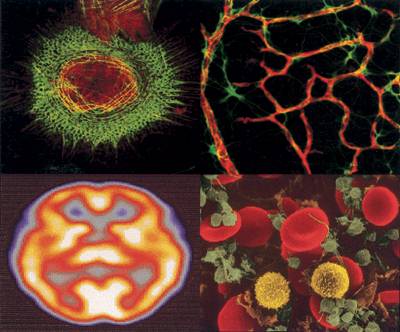
The Faculty of Medicine and Health Sciences at Queen's now includes the Schools of Medicine, Dentistry and Nursing. Queen's graduates are characterised both by their professional expertise and by the closeness with which they identify with their patients, a fact which often draws favourable comment from visiting professionals and educationalists.
Teaching
Modern, innovative teaching processes ensure that our doctors, dentists, nurses and midwives are trained to the highest possible standards of practice, and the Schools of Medicine, Dentistry and Nursing & Midwifery have been graded 'excellent' by the Quality Assurance Agency in the most recent reviews of teaching quality, with Dentistry obtaining the highest possible rating.
Research in the School of Medicine
Research in the medical school is now focused in large research centres: Cardiovascular & Genetics; Cancer; Ophthalmology & Vision Science; Inflammation and Smooth Muscle. In addition there are smaller research groups in Neuroscience, Anaesthetics, Reproductive Endocrinology and General Practice.
Research in the basic sciences, driven by advances in molecular biology and genetics, is the main focus of our research strategy, and recent years have seen the appointment of many basic scientists.
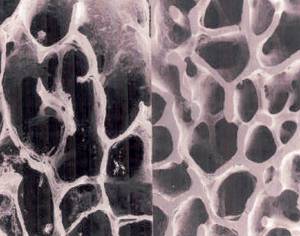
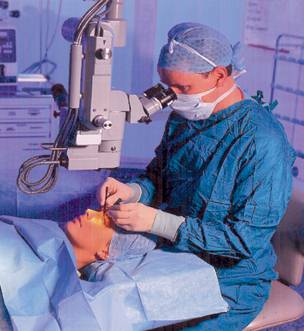
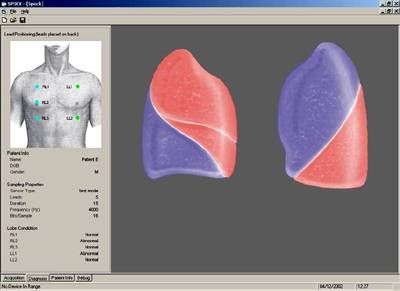
Infection and trauma are also responsible for a considerable number of deaths and disability, particularly in younger age groups. The Inflammation Research Centre conducts research into defence mechanisms against microbial attack, the inflammatory response in the aetiology of disease, and the inflammatory response in tissue repair. Awards totalling �7.3 million from research councils and major charities support research in a variety of areas - including genetic factors in multiple sclerosis, chronic obstructive pulmonary disease, arthritis, neonatal lung disease, childhood asthma, cystic fibrosis, and fracture healing.
The Smooth Muscle Research Centre concentrates on the mechanisms by which flow in lymphatic and blood vessels is regulated. Recent work has, for the first time, demonstrated the presence of specialised pacemaker cells and conducting tissue in lymphatic vessels and in the urethra.
The focus of activity within the General Practice Research Group relates to improving health care for patients in the community. Two major cross-border studies are ongoing, one examining the effect on consultation rates of patients paying for their health care, and the other studying the provision of secondary prevention in coronary heart disease. The group's interest in health promotion includes studies of the health benefits of walking, aspects of social disadvantage, and the delivery of care to patients with chronic disease such as multiple sclerosis and arthritis.
The Reproductive Endocrinology Research Group is a small group engaged in research in reproductive medicine. The research group seeks to integrate the scientific and clinical study of endocrine disease in reproduction, and current research interests include andrology (the study of male fertility) and ovarian physiology.
There are also successful programmes of research in other areas. The Anaesthetics Research Group promotes research and development in medical devices within the School of Medicine. Projects are coordinated by QUMED and involve collaboration with many groups, academic and corporate, both in the UK and USA. Current projects include medical simulator hardware components; breath sound monitoring and characterisation; medical textiles. The group also has an active programme of research in muscle relaxants and analgesics.
Research in Neuroscience focuses on the biological aspects of psychosis, the basis for antipsychotic drug action and the genetic basis for neuropsychiatric, neurodegenerative and neuroretinal disorders such as schizophrenia, tardive dyskinesia, Alzheimer's disease, Parkinson's disease, age-related macular degeneration, and retinitis pigmentosa. A multi-centre Neuroscience Recognised Research Group (RRG), with groups in both Queen's University and the University of Ulster, has recently been funded by the HPPS R&D Office for a five year period. This comprises a total of 11 Principal Investigators in seven programmes, encompassing studies of the molecular biology of neurodegeneration, the genetic epidemiology of tardive dyskinesia, functional neuroimaging and neuropsychology in schizophrenia, the role of serotonin in cognition, and genetic abnormalities of the neuroretina.
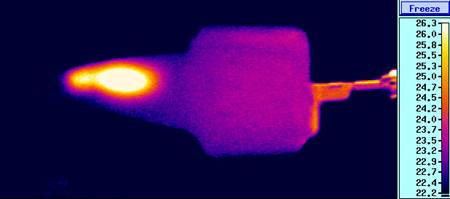
School of Dentistry
The School of Dentistry was established in 1929 and is one of the leading dental schools in the UK, despite being one of the smallest. There are currently 175 students, and this number will increase to 200 in the near future. In addition to its teaching role, it is also the major focus for dental research in Northern Ireland.
The principal research strengths are in the fields of pathogenesis and oral health and healthcare. There is a fully equipped tissue culture suite, a designated radioisotope area, and facilities for oral microbiology. The School has 'state-of-the-art' equipment for infrared thermographic imaging and dental material testing. Collaboration within the University and with other groups, nationally and internationally, is central to the growing success of the research programme.
Medical and dental research at Queen's is at the forefront of progress in many fields. We recognise that most research is collaborative and are keen to foster new alliances, particularly within the island of Ireland.
School of Nursing and Midwifery
The School of Nursing and Midwifery was established in 1991 and is the foremost provider of nurse/midwifery education in Northern Ireland. It successfully runs degree courses for 3,500 part-time and full-time students. In 2001 the School established a Research Unit to provide a focus for research on advancing practice through the conduct of high quality nursing and midwifery research. The Unit views national and international collaborative research as a key to success and combines basic theory driven work with strongly applied clinical and educational research. Research is carried out around two key themes, namely Clinical and Community Care , and Maternal and Child Health and concentrates on issues of concern for policy-makers, interdisciplinary professionals, patients and users of services. It has a particular interest in the contribution of research to evidence-based practice and policy making in the area of evaluation of services and delivery of care, clinical effectiveness, maternal and child health, midwifery research, public health, as well as the promotion of health. The role of users, patients and families in the assessment of need and the outcomes of care are also a major strand within the work. Collaborative links are important to the research culture and have been developed at local, national and international levels. Intra-University alliances with departments such as dentistry, obstetrics and gynaecology, paediatrics, pharmacy, primary medical care, medical education, sociology, psychology and epidemiology are central to successful multidisciplinary collaborations.
| School/Centre | Centre Leaders |
| School of Medicine | Professor Rod Hay ( [email protected] ) |
| School of Dentistry | Professor Philip Lamey ( [email protected] ) |
| School of Nursing and Midwifery | Professor J. Orr ( [email protected] ) |
| Cancer Research Centre | Professor Patrick Johnston ( [email protected] ) |
| Cardiovascular and Genetics Research Centre | Professor Barbara McDermott ( [email protected] ) |
| Smooth Muscle Research Centre | Professor Noel McHale ( [email protected] ) |
| Ophthalmology and Vision Science Research Centre | Professor Alan Stit ( [email protected] ) |
| Inflammation Research Centre | Professor Louise Cosby ( [email protected] ) |
| Anaesthetics Research Group | Professor Howard Fee ( [email protected] ) |
| General Practice Research Group | Dr Keith Steele ( [email protected] ) |
| Reproductive Endocrinology Research Group | Professor Neil McClure ( [email protected] ) |
| Neuroscience Research Group | Dr Stephen Cooper ( [email protected] ) |
| Centre for Health Care Informatics | Professor Peter Hamilton ( [email protected] ) |
Contact: Catherine McKeown, Research Administrator, Faculty of Medicine and Health Sciences,
Queen�s University Belfast.
E-mail: [email protected]